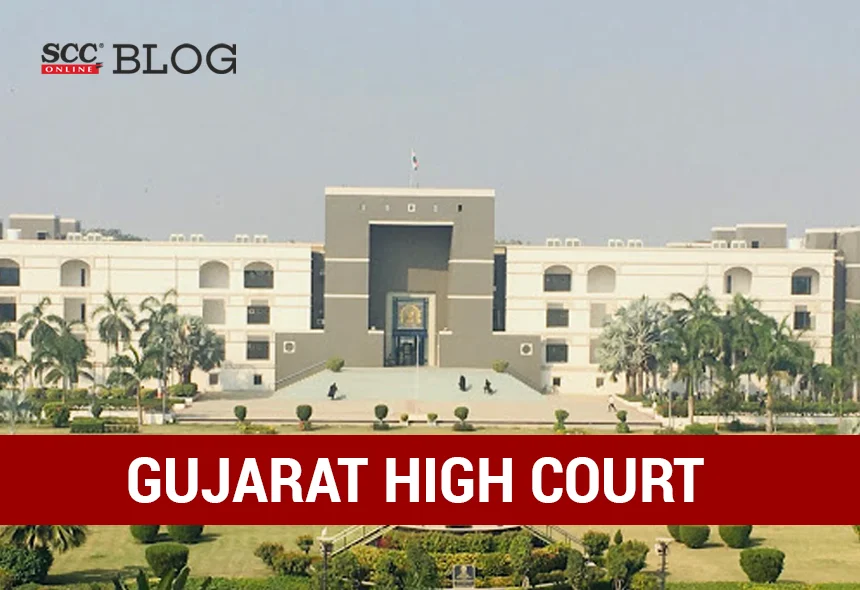Gujarat High Court: In a petition raising a question for applicability of Section 12 and 14 of the Arbitration Conciliation Act, 1996 (‘the Act’) as the arbitrator appointed by the respondent had a previous involvement with the same case, hence being contrary of Section 12(5) of the Act, Sunita Agarwal, CJ., after considering the order passed by the nominated Arbitrator in the capacity of Judge, held that nominated Arbitrator cannot be said to have any involvement in the case. Thus, the nomination cannot be held to be ineligible under Section 12(5) of the Act.
Due to some disputes between the parties, a three-member Arbitral Tribunal was constituted comprising of two party — nominated Arbitrators and one Presiding Arbitrator. However, the matter was adjourned sine die with the liberty to get the matter revived on the nominations of the Arbitrator by the respondent. The arbitrator’s appointment was challenged on the grounds that the Arbitrator was involved in the present dispute previously in his capacity as a sitting Judge of the Court. It was also contended that the Arbitrator who was appointed was a member of the Division Bench of the Court which had previously passed an order relating to the matter at hand. The petitioner’s case was that since the nominated Arbitrator was involved in the instant case for the dispute which was dealt by him at the previous point of time, he was ineligible, hence, falling within item 15 and 16 of Schedule VII and V of the Act. The petitioner also raised the question as to the sufficient grounds to give rise to justifiable doubts as to the independence and impartiality of the Arbitrator appointed.
Schedule VII of the Act- Item 15 and 16
Relationship of the arbitrator to the dispute.
15. The arbitrator has given legal advice or provided an expert opinion on the dispute to a party or an affiliate of one of the parties.
16. The arbitrator has previous involvement in the case
Schedule V elaborates grounds which give rise to justifiable doubts as to the independence or impartiality of arbitrators.
Analysis and Decision
Whether nomination of Arbitrator by the respondent who was involved in the dispute previously in capacity of Judge and passed an Order is eligible?
The Court referred to HRD Corpn. v. GAIL (India) Ltd., (2018) 12 SCC 471, regarding Schedule VII of the Act, wherein, it was said that it is obvious that the Arbitrator has to have a previous involvement in the very dispute contained in the present arbitration. Item No. 16 cannot be read as including previous involvements in another arbitration on a related issue involving one of the parties. It refers to previous involvement in an advisory or other capacity in the very dispute, but not as arbitrator. The Court noted that it was held that providing an expert opinion or advice to a party, as occurring in Item No. 15, would not include legal advise given as it would include only a situation where Arbitrator had been an Adviser insofar as the source of business of a party to the arbitration.
Therefore, the Court said that in case of any professional or business relationship between the Arbitrator and one of the party would disentitle him to act as an Arbitrator, however, the legal advice given to the party in any other issue would not be a reason to hold the Arbitrator ineligible.
The Court noted that instances incorporated in Schedule V and VII, based on the ground of reasonable likelihood of bias, would render an Arbitrator to be ineligible in a subsequent arbitration related to the same matter.
The Court looked into the merits of the order passed by the Division Bench of the Court of which the nominated Arbitrator was a member. The Court noted that the challenge in the said case before the Division Bench was to a common order passed by the Commercial Tribunal on a challenge to the interim order passed by the Arbitral Tribunal. It was held that the Tribunal was justified in passing the interim order dated which was subject to the award finally to be made by the Tribunal. The Court also noted that a subsequent order was passed in the nature of clarification without hearing any of the parties, on basis of a communication made by the lender.
After considering the order passed by the Division Bench of the Court, the Court opined that the said order would not fall within the meaning of Item No. 16 “that Arbitrator has previous involvement in the case” both occurring in Schedule V or VII of the Act. The Court held that by a mere fact that the nominated Arbitrator had been a member of the Bench of the Court, which had decided the validity of the interim order passed by the then Arbitral Tribunal, it cannot be held that the “Arbitrator has previous involvement in the case”. The Court also said that the apprehension raised about the independence and impartiality of the nominated Arbitrator, does not fall within the meaning of ‘justifiable doubts’ as occurring in Schedule V and VII.
Thus, the Court stated that the nominated Arbitrator, who had decided the issue before him in the capacity of a Judge of the Court, cannot be said to have any involvement in the case. Hence, the Court held that the nominated Arbitrator cannot be held to be ineligible under Section 12(5) of the Act.
[JRE Infra Private Limited v. Deendayal Port Authority, 2023 SCC OnLine Guj 4146, Decided on 10-11-2023]







